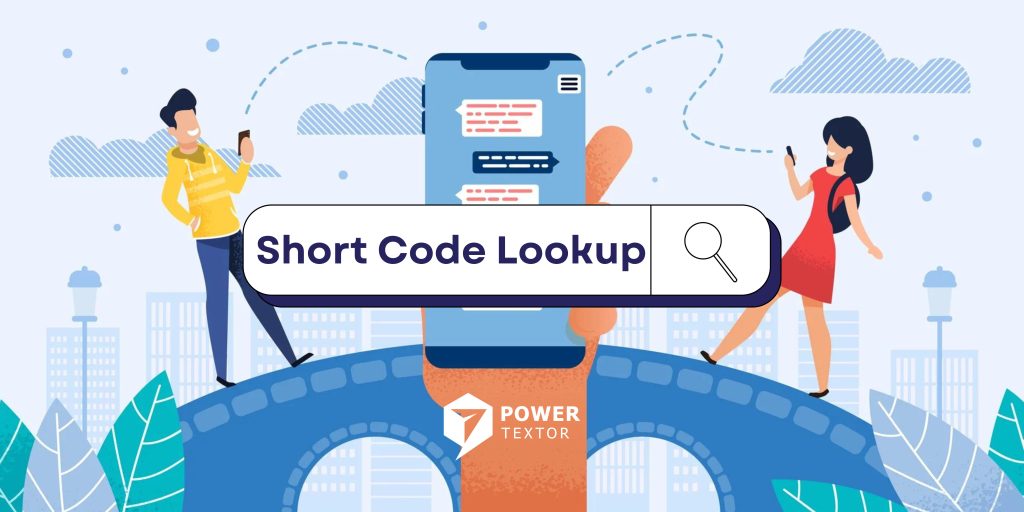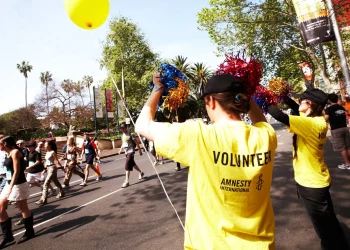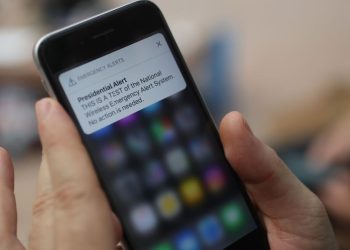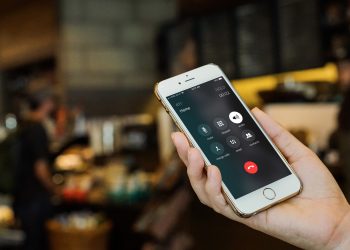Shortcodes, those memorable 5-6 digit phone numbers, are a powerful tool for businesses to connect with customers through SMS and MMS messaging. They offer a direct and efficient way to:
- Streamline Opt-in Gathering: Facilitate easy sign-ups for SMS campaigns, ensuring compliance with regulations and building a targeted audience.
- Boost Customer Satisfaction: Provide prompt support, address inquiries, and resolve issues quickly through SMS, leading to happier customers.
- Deliver Instant Information: Share vital details like appointment reminders, account updates, or exclusive offers directly to customers’ phones.
- Forge a Unique Brand Identity: Create a catchy and memorable shortcode that makes it effortless for customers to connect with your brand.

Navigating Shortcode Regulations in 2024
Since 2021, mobile carriers in the U.S. no longer support shared shortcodes. Businesses must now utilize dedicated shortcodes for their messaging initiatives. Additionally, adhering to the messaging guidelines the Common Short Code Administration (CSCA) sets is essential for maintaining responsible communication practices.
Find the Perfect Shortcode with Our Resources
Access to an accurate and reliable directory is crucial to maximize the benefits of SMS shortcodes. We offer a comprehensive suite of resources to help you navigate the world of SMS shortcodes, including:
- Short Code Lookup: Discover a vast database of shortcodes dedicated to SMS messaging, simplifying communication with your target audience.
- Free Short Code Lookup Tools: Utilize user-friendly search tools to find the perfect shortcode for your messaging campaigns, absolutely free!
- U.S. Shortcode Directories: Explore curated lists specifically designed for the U.S. market, ensuring compliance with local regulations.
- Text Message Shortcode Lookup: Easily find shortcodes dedicated to text message communication for seamless customer engagement.
Expand Your Reach and Drive Engagement
SMS shortcodes unlock a multitude of benefits for businesses looking to enhance their communication strategies:
- Effective Opt-in Management: Allow customers to conveniently subscribe to your SMS services and receive valuable updates and promotions through unique shortcodes.
- Real-Time Information Access: Provide immediate updates, order status notifications, and customer support directly via shortcodes, catering to the fast-paced nature of mobile communication.
- Streamlined Two-Way Communication: Facilitate efficient customer interactions by promptly addressing inquiries and resolving issues through SMS shortcodes.
Here are 100 commonly used SMS short codes in the United States:
- 911: Emergency services
- 211: Community information and referral services
- 311: Non-emergency government services
- 511: Traffic and transportation information
- 711: Telecommunications Relay Service for the deaf or hard of hearing
- 811: Dig Safe or call before you dig services
- 888-111: American Red Cross
- 877-877: Stop to end unwanted text messages or SPAM messages
- 9999: Mobile Giving Foundation (charity donations via text message)
- 411: Directory assistance
- 611: Customer service for wireless carriers
- 999: Emergency services (in some areas)
- 211-211: Crisis and emergency counseling
- 888-222: Donate to charity
- 878787: Mobile coupons and promotions
- 888888: Political campaigns and advocacy groups
- 12345: Emergency alerts and notifications from local governments
- 246246: Weather alerts and notifications
- 747474: Flight status and updates
- 332211: Shortcode for Google
- 50555: American Cancer Society
- 313131: American Diabetes Association
- 515151: American Heart Association
- 80077: Planned Parenthood
- 41444: St. Jude Children’s Research Hospital
- 52000: UNICEF USA
- 37337: World Wildlife Fund
- 233733: American Red Cross Blood Donation
- 26262: Autism Speaks
- 27722: March of Dimes
- 466453: Google SMS search
- 47246: AT&T customer support
- 729725: PayPal
- 777111: Delta Airlines flight status updates
- 888777: Uber
- 89800: Comcast customer support
- 93433: Papa John’s Pizza
- 98999: Domino’s Pizza
- 97411: Subway
- 27627: Best Buy
- 404040: ESPN
- 44636: Fandango
- 773342: Starbucks
- 79489: Target
- 81888: Walgreens
- 888222: Donate to charity (via Mobile Accord)
- 90999: Text-to-donate to the Red Cross Disaster Relief Fund
- 90909: Text-to-donate to UNICEF
- 41010: Text-to-donate to the American Cancer Society
- 20222: Text-to-donate to the United Way
- 30333: Text-to-donate to the World Wildlife Fund
- 52182: Text-to-donate to the Alzheimer’s Association
- 68453: Text-to-donate to the American Heart Association
- 21121: Text-to-donate to the American Red Cross
- 37332: Text-to-donate to the ASPCA
- 41444: Text-to-donate to St. Jude Children’s Research Hospital
- 45678: Text-to-donate to the Make-A-Wish Foundation
- 51555: Text-to-donate to the American Cancer Society
- 515151: Text-to-donate to the American Heart Association
- 56651: Text-to-donate to Habitat for Humanity
- 63566: Text-to-donate to the Salvation Army
- 67777: Text-to-donate to Feeding America
- 777444: Text-to-donate to the Boys & Girls Clubs of America
- 90999: Text-to-donate to the Red Cross Disaster Relief Fund
- 909090: Text-to-donate to UNICEF
- 99099: Text-to-donate to the National Wildlife Federation
- 99888: Text-to-donate to the Sierra Club
- 123456: Text-to-vote for reality T.V. shows (e.g., American Idol)
- 989898: Text-to-vote for political candidates and campaigns
- 33898: Text-to-vote for game shows (e.g., Wheel of Fortune)
- 54321: Text-to-vote for talent competitions (e.g., Dancing with the Stars)
- 335577: Text-to-vote for award shows (e.g., Oscars)
- 246246: Text-to-vote for surveys and polls
- 30330: Text-to-order from Papa John’s Pizza
- 41411: Text-to-order from Domino’s Pizza
- 79999: Text-to-order from Subway
- 55171: Text-to-order from Redbox
- 47377: Text-to-order from 1-800-Flowers.com
- 782929: Text-to-order from Macy’s
- 227466: Text-to-order from Barnes & Noble
- 698443: Text-to-order from Sephora
- 29502: Text-to-order from American Eagle Outfitters
- 30364: Text-to-order from Jamba Juice
- 73277: Text-to-order from Quiznos
- 89077: Text-to-order from Papa Murphy’s Pizza
- 95000: Text-to-order from Dunkin’ Donuts
- 247365: Text-to-order from CVS Pharmacy
- 57531: Text-to-order from 7-Eleven
- 21333: Text-to-order from Taco Bell
- 266866: Text-to-order from Chili’s
- 729466: Text-to-order from Pizza Hut
- 78645: Text-to-order from Starbucks
- 66937: Text-to-order from Olive Garden
- 48324: Nikki Haley for President
- 25392: Amazon Text2Cart
- 82757: TaskRabbit
- 386732: DuoSecurity
- 87039: G.M. Rewards
- 48000: Trumpia
- 20222: Mobile Giving
How do you find out Who owns a shortcode?
You can use the Short Code Registry maintained by the Common Short Code Administration (CSCA) to determine the owner of a short code. The CSCA is the official regulatory body that manages shortcodes in the United States and Canada.
To find out who owns a short code, follow these steps:
- Go to the Short Code Registry website at www.usshortcodes.com.
- Click on “Search” in the top menu bar.
- Enter the shortcode you want to search for in the “Short Code” field.
- Click on “Search.”
The search results will show you the name of the company or organization that owns the short code and any additional details that may be available, such as the type of messages for which the shortcode is used.
If you encounter any challenges while trying to find the information you need from the Short Code Registry, we suggest contacting the CSCA for further assistance. They can provide you with additional support and help you quickly resolve any issues you may encounter. Thank you for taking the time to consider this recommendation.
What are Shortcodes commonly used for?
Shortcodes are versatile tools used in many applications where a quick and easy way to send and receive text messages is needed. They are used for various purposes, including marketing campaigns, information services, charity donations, customer support, and two-factor authentication.
Marketing Campaigns
Increased engagement: Text message marketing has been shown to have a higher open and response rate than other forms of digital marketing. Shortcodes can help increase engagement by making it easy for customers to respond to a call-to-action or redeem a special offer.
Targeted messaging: Shortcodes allow companies and organizations to send targeted messages to specific groups of customers who have opted-in to receive them. This can help improve the effectiveness of marketing campaigns and lead to higher conversion rates.
Cost-effective: Sending text messages using shortcodes can be much less expensive than other forms of marketing, such as print or broadcast advertising.
Real-time interaction: Shortcodes allow companies and organizations to interact with customers in real time, which can be especially useful for customer support or quick responses to customer inquiries.
Information Services
Fast and convenient: Shortcodes allow customers to access information, such as weather updates, news headlines, and stock quotes, with just a few keystrokes.
Customizable: Shortcodes can be customized to provide specific information services to customers. For example, a short code could be set up to provide local weather updates or news headlines specific to a customer’s interests.
Real-time updates: Shortcodes provide real-time updates, informing customers about breaking news or other important events.
Cost-effective: Providing information services through shortcodes can be much less expensive than other forms of communication, such as phone calls or postal mail.
Targeted messaging: Shortcodes can be used to provide targeted messaging to specific customer groups who have opted in to receive information.
Charity Donations
Convenience: Shortcodes provide a fast and convenient way for donors to donate with just a few keystrokes.
Easy to remember: Short codes are typically only 5 or 6 digits long, making them easy for donors to remember. This makes it more likely that donors will donate.
Real-time updates: Shortcodes can provide donors with real-time updates, allowing them to see the impact of their donation in real-time.
Cost-effective: Collecting donations through shortcodes can be much less expensive than other forms of fundraising, such as direct mail or telemarketing.
Increased reach: Shortcodes can be promoted through various channels, including social media, television, and print advertising. This can help increase the reach of a charity’s fundraising efforts and attract new donors.
Customer Support
Real-time interaction: Shortcodes provide a fast and convenient way for customers to interact with support teams in real time, allowing them to get quick answers to their questions and resolve issues more efficiently.
Customizable: Shortcodes can be customized to provide specific customer support services, such as help with troubleshooting, product information, or account management.
Targeted messaging: Shortcodes can be used to provide targeted messaging to specific groups of customers who need support, such as those who have recently purchased a product or encountered a specific issue.
Cost-effective: Providing customer support through shortcodes can be much less expensive than other forms of support, such as phone calls or in-person visits.
Increased accessibility: Shortcodes can provide support services to customers who may not have access to other forms of support, such as those who live in remote areas or have limited mobility.
Two-factor Authentication
Secure: Shortcodes can be part of a two-factor authentication process to provide additional security to logins and transactions. The code is sent directly to the user’s mobile device and is only valid temporarily, making it difficult for hackers to intercept and use.
Fast: Shortcodes can be delivered quickly, allowing users to authenticate their login or transaction in seconds.
Convenient: Short codes are easy to use and don’t require users to remember complicated passwords or carry physical tokens or cards.
Cost-effective: Implementing two-factor authentication through shortcodes can be much less expensive than other forms of authentication, such as biometric scanners or hardware tokens.
Scalable: Shortcodes can be used to provide two-factor authentication to a large number of users quickly and efficiently.
Frequently Asked Questions
Q: Where can I find a directory of SMS short codes in the U.S. and Canada?
A: Several registries list short codes:
- U.S. Short Code Registry: https://www.usshortcodes.com/find-short-code
- TXT.CA: https://www.txt.ca/en/
Q: How can I look up a specific SMS short code (5-digit or 6-digit)?
A: Use the search bars on the directories mentioned above. Some websites offer dedicated lookup tools. Remember, short code lookups are informational only and may not reveal complete details.
Q: What are the different types of SMS short codes available?
A: Short codes serve various purposes:
- Marketing: Promotions, coupons, contests, and other sales tactics.
- Donations: Support charities and non-profits with contributions.
- Information: Weather alerts, sports scores, news updates, etc.
- Entertainment: Voting on shows, trivia games, and more.
- Customer Service: Support inquiries, order tracking, etc.
Q: What do shortcodes like 74843 or 42954 mean?
A: Unfortunately, determining the meaning of a specific short code without context is impossible. You can:
- Use a lookup tool on the directories mentioned above.
- Visit the website associated with the shortcode (if available).
- Contact the short code owner directly (often listed in the directory).
Q: How can I get a short code for my business?
A: Costs and requirements vary depending on your needs. Research and contact short code providers or aggregators for more information.














